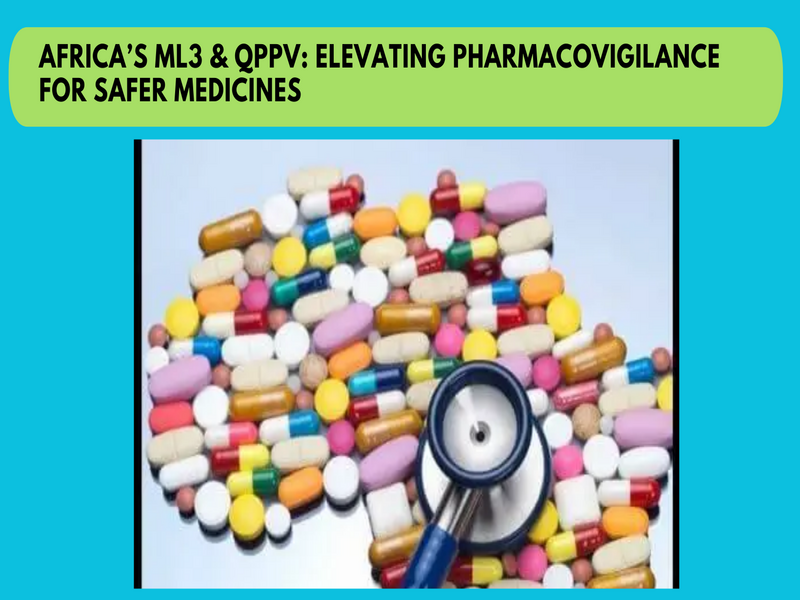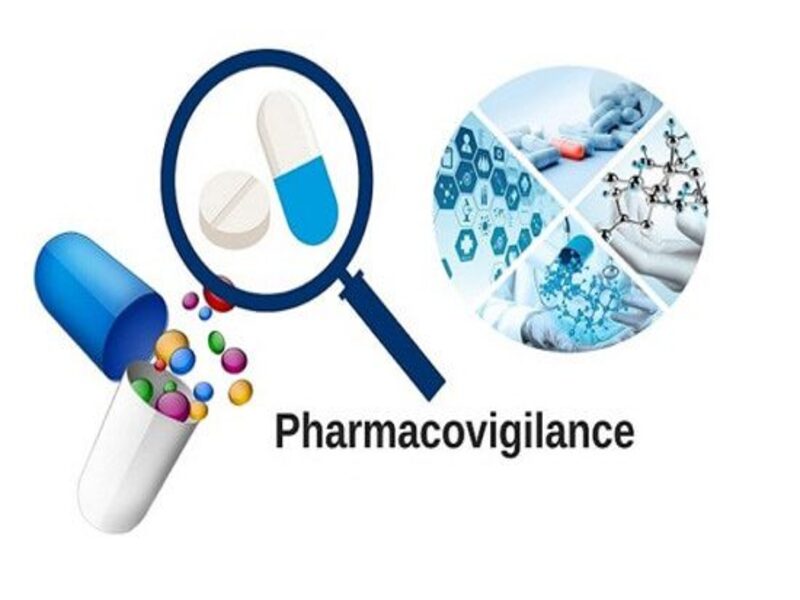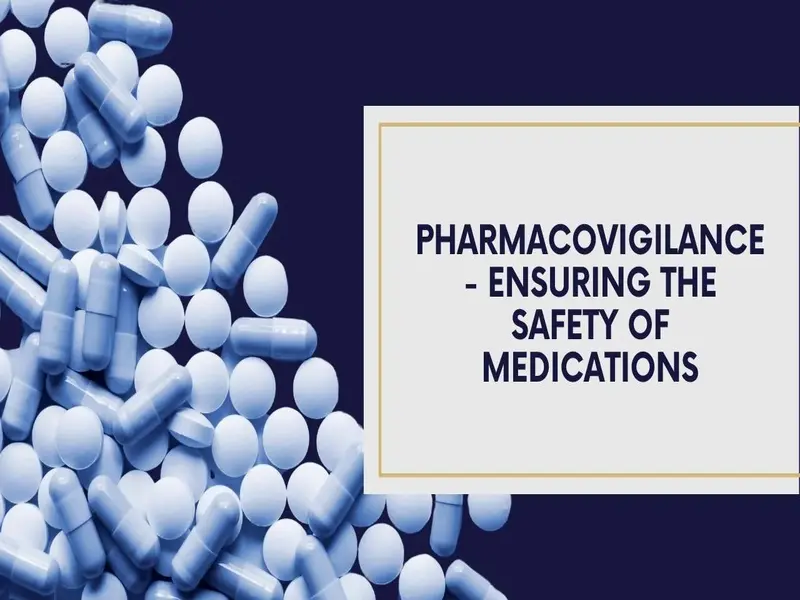A Qualified Person for Pharmacovigilance (QPPV) plays a crucial role in ensuring patient safety and regulatory compliance in the pharmaceutical industry. As more countries enhance their pharmacovigilance (PV) systems, the role of QPPV has become increasingly significant, particularly in African nations that have attained Maturity Level 3 (ML3) as per the World Health Organization (WHO) classification.
African Countries with Maturity Level 3 and QPPV Requirements
Several African countries have achieved Maturity Level 3, demonstrating well-functioning regulatory systems capable of ensuring compliance with international safety standards. These countries include:
1. South Africa
South Africa’s attainment of Maturity Level 3 (ML3) in October 2022 was officially recognized by the World Health Organization (WHO). This designation confirms that the country’s regulatory system is stable, well-functioning, and integrated, ensuring the quality, safety, and effectiveness of vaccines manufactured, imported, or distributed within South Africa
Guideline: The South African Health Products Regulatory Authority (SAHPRA) on pharmacovigilance systems mandates the appointment of Qualified Person Responsible for Pharmacogivigilance (QPPV) responsible for ensuring compliance with pharmacovigilance regulations.
Key Requirements
The applicant/HCR must have a permanently appointed Qualified Person Responsible for Pharmacogivigilance(QPPV) for all of its medicines in South Africa.
The QPPV is an individual on full time employment by the HCR, who is responsible for overall pharmacovigilance for all medicines of the HCR.
For multinational HCRs, whose QPPV does not have a full oversight of the local pharmacovigilance system and/or resides elsewhere, the HCR should ensure that the QPPV nominate a local pharmacovigilance officer.
LPVO is equated to a QPPV in terms of training, responsibilities, accountability and qualifications.
The QPPV should reside and operate in South Africa
Each pharmacovigilance system should have only one QPPV
The applicant/HCR may outsource certain pharmacovigilance activities to a third-party organization excluding the role of the QPPV.
Qualifications of the QPPV
The QPPV must be a healthcare professional with a degree in Medicine, Pharmacy, Nursing, or a related field. Alternatively, a non-healthcare professional with a relevant scientific discipline and at least two years of pharmacovigilance experience may also qualify.
The QPPV should have experience and training in all aspects of pharmacovigilance, including system management. They must also have expertise or access to expertise in medicine, pharmaceutical sciences, epidemiology, and biostatistics.
The QPPV shall receive formal training relevant to pharmacovigilance practice.
2. Nigeria
Nigeria’s National Agency for Food and Drug Administration and Control (NAFDAC) achieved Maturity Level 3 (ML3) in March 2022, as recognized by the World Health Organization (WHO). This accomplishment signifies that Nigeria’s regulatory system for medicines and imported vaccines is well-functioning and meets international standards.
This achievement places Nigeria among the selected African nations with ML3 status. Underscoring its commitment to ensuring the safety, quality, and efficacy of medical products.
Guideline: The National Agency for Food and Drug Administration and Control (NAFDAC) has developed PV guidelines on Qualified Person for Pharmacovigilance to oversee the pharmacovigilance activities.
Key Requirements
The Certification of Registration Holder (CRH) must always have a suitably qualified individual responsible for pharmacovigilance. This designated person must reside in Nigeria.
Qualifications of the QPPV
The QPPV must be a healthcare professional. With pharmacovigilance system management skills and expertise or access to expertise in medicine, pharmaceutical sciences, epidemiology, biostatistics, or an Agency-recognized healthcare degree.
The Agency may also consider individuals with a relevant scientific background and a minimum of two years of experience. In a specific pharmacovigilance role for designation as the Qualified Person for Pharmacovigilance (QPPV).
Before they assume the role, the Registration Holder must provide the QPPV with documented training on its pharmacovigilance system. Additional training on the medicinal products covered by the system should be considered as needed.
3. Ghana
Ghana’s Food and Drugs Authority (FDA) achieved Maturity Level 3 (ML3) in medicines regulation in April 2020. Following an assessment by the World Health Organization (WHO). This accomplishment signifies that Ghana’s regulatory system is well-functioning and meets international standards, ensuring the safety, quality, and efficacy of medical products within the country.
This recognition placed Ghana among the first African nations to reach ML3 status, underscoring its commitment to public health and regulatory excellence.
Guideline: The Food and Drugs Authority (FDA Ghana) mandates that the Marketing Authorization Holder must have a Qualified Person for Pharmacovigilance (QPPV). The QPPV must reside in Ghana, as stipulated in the guideline on Qualified Persons for Pharmacovigilance.
Key Requirements
The QPPV must be a healthcare professional with a recognized degree (e.g., Medicine, Pharmacy, Nursing, or Physician Assistantship).
Alternatively, a candidate with a relevant scientific discipline and at least two years of pharmacovigilance experience may qualify.
The QPPV must undergo formal pharmacovigilance training recognized by the Authority.
4. Egypt
Egypt achieved Maturity Level 3 (ML3) in medicines regulation in December 2024, as recognized by the World Health Organization (WHO). This accomplishment signifies that Egypt’s regulatory system for medicines is stable, well-functioning, and meets international standards. Notably, Egypt had previously attained ML3 for vaccines regulation in March 2022, making it the first African country to achieve ML3 for both medicines and vaccines
In Egypt, pharmacovigilance is regulated by the Egyptian Drug Authority (EDA) through its Pharmacovigilance Center (Egyptian Pharmacovigilance Center – EPVC). The EPVC is responsible for monitoring the safety of medicines, collecting adverse drug reaction (ADR) reports, and ensuring risk management measures are in place
Key Requirements
A pharmaceutical, medical, or life sciences background (e.g., pharmacist, doctor).
Strong knowledge of local and global pharmacovigilance regulations.
Experience in drug safety, case processing, and risk management.
Ability to handle regulatory inspections and audits.
5. Tanzania
In December 2018, Tanzania became the first African country to achieve Maturity Level 3 (ML3) in medicines regulation, as recognized by the World Health Organization (WHO). This milestone indicates that Tanzania’s regulatory system is stable, well-functioning, and meets international standards, ensuring the safety, quality, and efficacy of medical products within the country.
This accomplishment underscores Tanzania’s commitment to strengthening its health systems and regulatory frameworks, serving as a model for other nations aiming to enhance their public health infrastructure.
Guideline: The Tanzania Medicines and Medical Devices Authority (TMDA) provides guidelines for marketing authorization holders regarding pharmacovigilance.
Key Requirements
The Marketing authorization holders must appoint a QPPV responsible for implementing and maintaining an effective pharmacovigilance system.
The QPPV must ensure compliance with Good Pharmacovigilance Practices (GVP).
They should be accessible to regulatory authorities at all times.
6. Rwanda
Rwanda’s Food and Drugs Authority (Rwanda FDA) achieved Maturity Level 3 (ML3) in medicines regulation in December 2024. Following an assessment finalized in October 2024 by the World Health Organization (WHO). This accomplishment signifies that Rwanda’s regulatory system is stable, well-functioning, and meets international standards. Ensuring the safety, quality, and efficacy of medical products within the country.
This milestone places Rwanda among the select group of African nations that have reached ML3 status, underscoring its commitment to public health and regulatory excellence.
The Rwanda Food and Drugs Authority (Rwanda FDA) has published the Guidelines on Safety and Vigilance of Medical Products and Health Technologies which provide detailed procedures for ensuring the safety and vigilance of medical products. These guidelines emphasize the importance of Marketing Authorization Holders (MAHs) appointing a Qualified Person for Pharmacovigilance (QPPV) and maintaining a Pharmacovigilance System Master File (PSMF). The guideline also outlines the QPPV’s role in overseeing pharmacovigilance activities.
Achieving ML3 indicates that a country’s regulatory system is stable, well-functioning, and meets international standards, ensuring the safety, quality, and efficacy of medical products. This milestone reflects significant progress in strengthening health systems and regulatory frameworks across the continent.
Notably, Senegal and Zimbabwe have also achieved ML3 status in December 2024, becoming the seventh and eighth African nations to do so.
These advancements underscore the commitment of African nations to enhance public health through robust regulatory systems.
Significance of Maturity Level 3 (ML3) Achievement
1. Ensures stable and internationally recognized regulatory systems.
2. Strengthens public health and safety through robust pharmacovigilance frameworks.
3 . Reflects commitment to quality management and compliance in Africa.
These advancements highlight the increasing role of QPPVs in maintaining regulatory excellence and patient safety across the continent
Qualities of Health Authority Bodies with Maturity Level 3 (ML3)
Health authorities that have achieved Maturity Level 3 (ML3) under the World Health Organization (WHO) Global Benchmarking Tool (GBT) demonstrate well-functioning and stable regulatory systems. These agencies ensure the quality, safety, and efficacy of medical products through strong regulatory frameworks and compliance measures.
Key Qualities of ML3 Regulatory Authorities
1. Robust Legal and Regulatory Frameworks
Clear regulatory guidelines aligned with international standards (e.g., WHO, ICH, GVP).
Well-defined laws and policies governing medicines, vaccines, and medical devices.
2. Strong Pharmacovigilance and Safety Monitoring
QPPV appointment for all Marketing Authorization Holders (MAHs).
3. Efficient Regulatory Oversight and Compliance
Regular inspections and audits to ensure industry compliance.
Well-trained regulatory inspectors for Good Pharmacovigilance Practices (GVP) assessments.
Ability to enforce regulations and impose penalties when necessary.
4. High-Quality Review and Approval Processes
Streamlined medicine registration and approval processes.
Transparency in decision-making and regulatory processes.
5. Effective Quality Management Systems (QMS)
Implementation of Good Manufacturing Practices (GMP), Good Clinical Practices (GCP), and GVP.
Continuous monitoring and improvement of regulatory processes.
Compliance with ISO quality management standards
6. Capacity for Training and Workforce Development
Regular training programs for regulatory personnel, industry stakeholders, and healthcare professionals.
Collaboration with international regulatory agencies (e.g., EMA, FDA, WHO).
By achieving ML3 status, these health authorities demonstrate their commitment to regulatory excellence, public health protection, and international compliance. This recognition strengthens their ability to ensure high-quality medical products and enhance patient safety across their respective countries.
Conclusion
A QPPV is a key figure in regulatory affairs and pharmacovigilance, ensuring that pharmaceutical companies comply with evolving regulatory frameworks while upholding quality standards. As more African countries reach Maturity Level 3, the demand for skilled QPPVs will continue to grow.
As regulatory systems reach Maturity Level 3, the demand for skilled QPPVs will continue to grow.
At Jeyflex Consultants Ltd., we provide expert guidance on pharmacovigilance, QPPV roles, and regulatory compliance. Contact us to learn more about how we can support your pharmacovigilance, regulatory, and quality management needs.
Article by Marraret Ouma




